Deciding whether to accept a higher position offer can be challenging, especially when personal and professional priorities come into play. It's crucial to weigh the benefits against your current situation and future goals. If you find yourself thinking about saying no to that enticing opportunity, you're definitely not aloneâmany have navigated similar dilemmas. Curious about how to gracefully decline an offer while maintaining positive relationships? Read on for some helpful tips!

Gratitude Expression
Deciding to decline a higher position offer requires careful consideration and diplomacy. Expressing gratitude is essential. Communicating appreciation for the opportunity highlights professionalism. Indicating respect towards decision-makers fosters personal and professional connections. Clearly stating the decision ensures there is no ambiguity regarding intentions. Mentioning future collaboration opportunities maintains a positive relationship. Effective communication in such contexts can lead to potential future openings or collaborations. Consider the timing and method of delivering the message, whether through email or a personal meeting. This decision, while difficult, can reflect personal values and career goals. Thoughtful wording can significantly impact long-term professional relationships.
Clear Decline Statement
Declining a higher position offer requires professionalism and clarity. After careful consideration, expressing gratitude for the opportunity, while directly stating the decision, will convey respect and maintain a positive relationship. It's important to mention the reason briefly, without going into excessive detail, ensuring that the message remains concise and respectful. Acknowledging the role's significance and wishing the team success in finding a suitable candidate can demonstrate goodwill and professionalism. This approach fosters a constructive atmosphere for potential future interactions.
Reason for Declining
A higher position offer can present exciting career advancements but may also come with challenges that lead to thoughtful consideration. Factors such as increased responsibilities, extended working hours, and significant changes in work-life balance could contribute to the decision to decline. Additionally, the current team's dynamics and the overall company culture may not align with personal values or expectations. Financial implications related to relocation or commuting could also weigh heavily on the decision. Ultimately, it is crucial to evaluate both professional aspirations and personal priorities when determining the best path forward in one's career journey.
Future Relationship Acknowledgment
Declining a higher position offer can be a sensitive matter. It is essential to express gratitude while ensuring the future relationship remains positive. A candidate, after careful reflection, may choose to decline a promotion to a managerial role within a reputable company, such as a Fortune 500 organization. They might emphasize appreciation for the opportunity, recognizing the efforts of the hiring manager and the team's faith in their capabilities. Acknowledging the importance of maintaining open communication, the candidate could express a desire to explore potential collaborations or projects in the future, ensuring that professional networks remain intact and opportunities for growth are not entirely closed off.
Contact Information
Declining a higher position offer can be a challenging decision, especially in a workplace culture that values advancement. A candidate, for instance, may have received an offer for a managerial role within a prominent corporation such as Tech Innovations Solutions, known for its commitment to employee growth. Factors influencing the decline may include personal circumstances, relocation requirements, or a desire to further develop skills in a current role. Responsibly communicating this decision demonstrates professionalism, respecting the time and resources invested by the company in the hiring process, while preserving future opportunities within the organization.

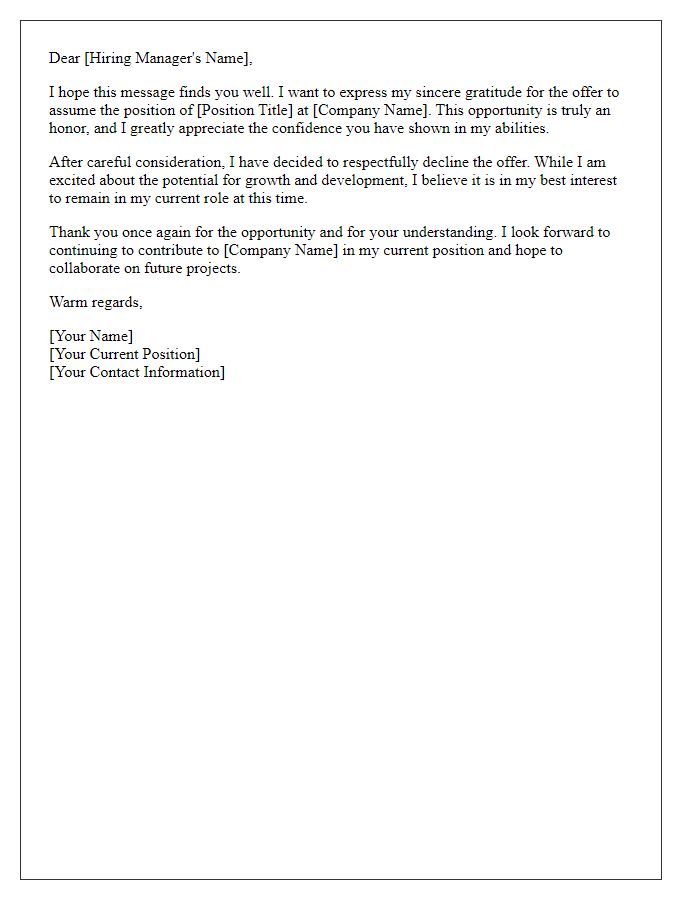
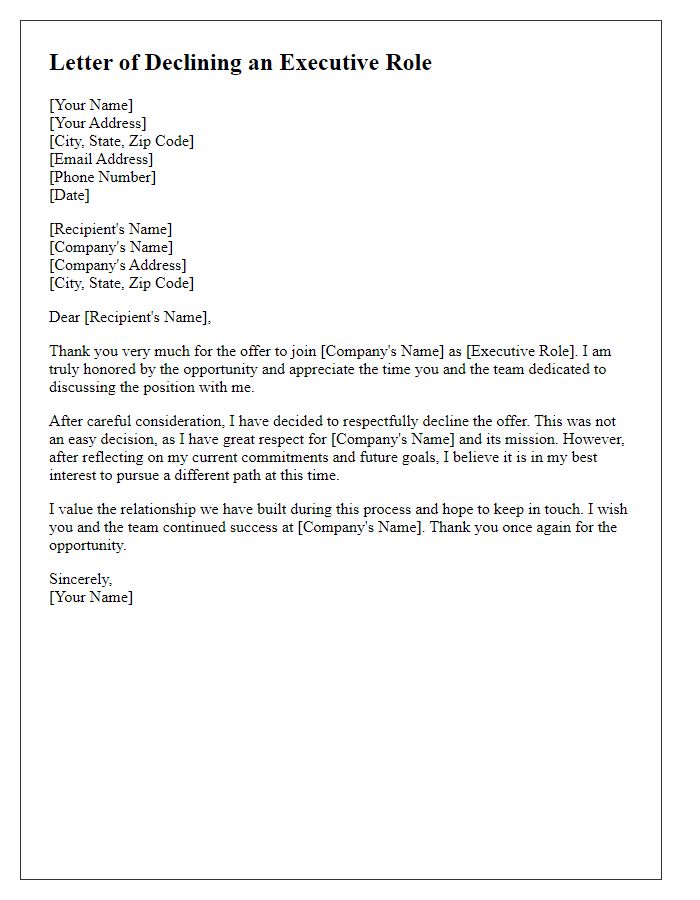
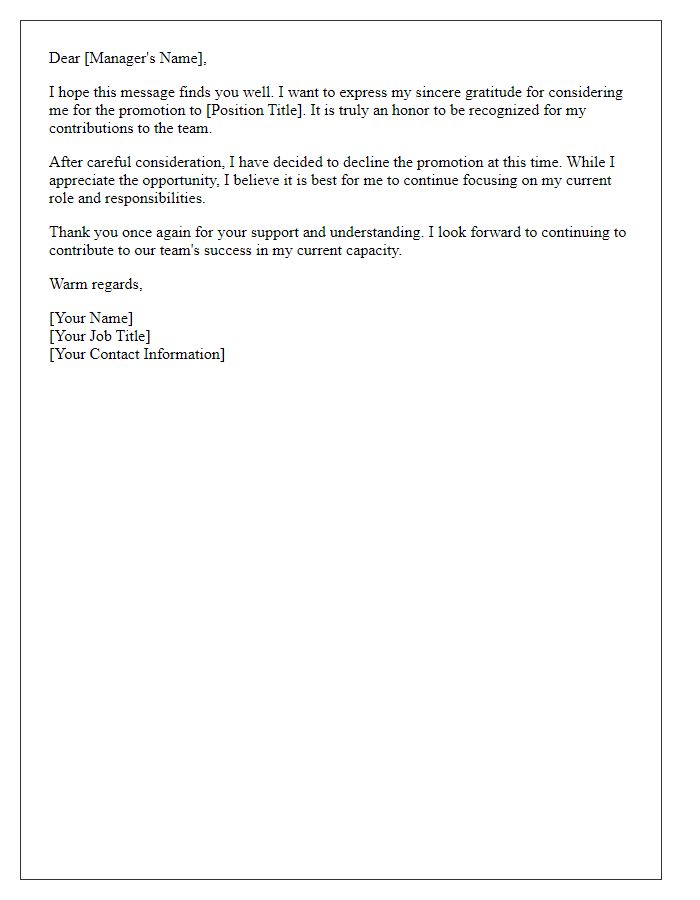
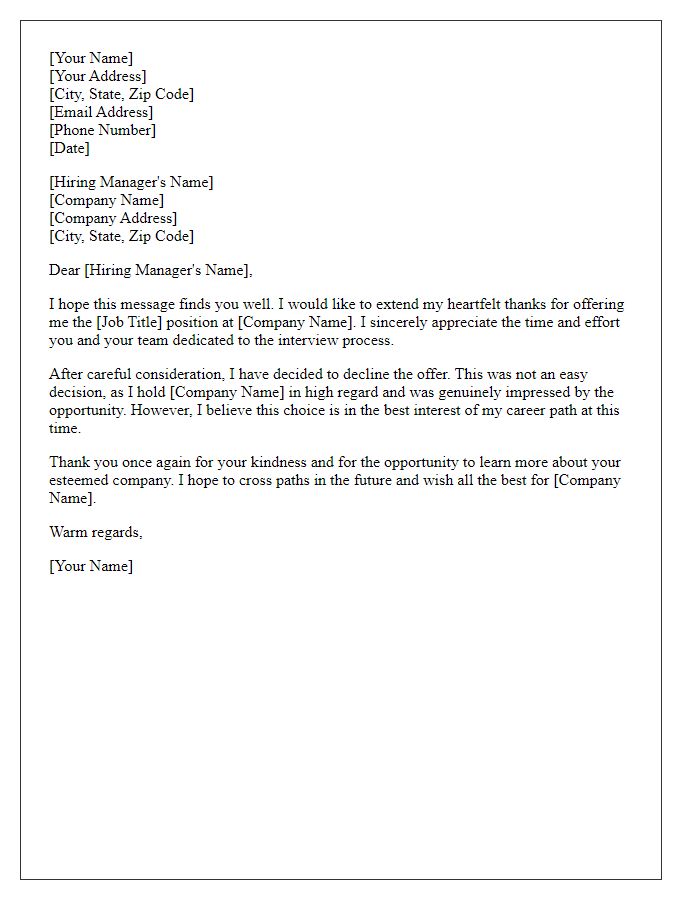
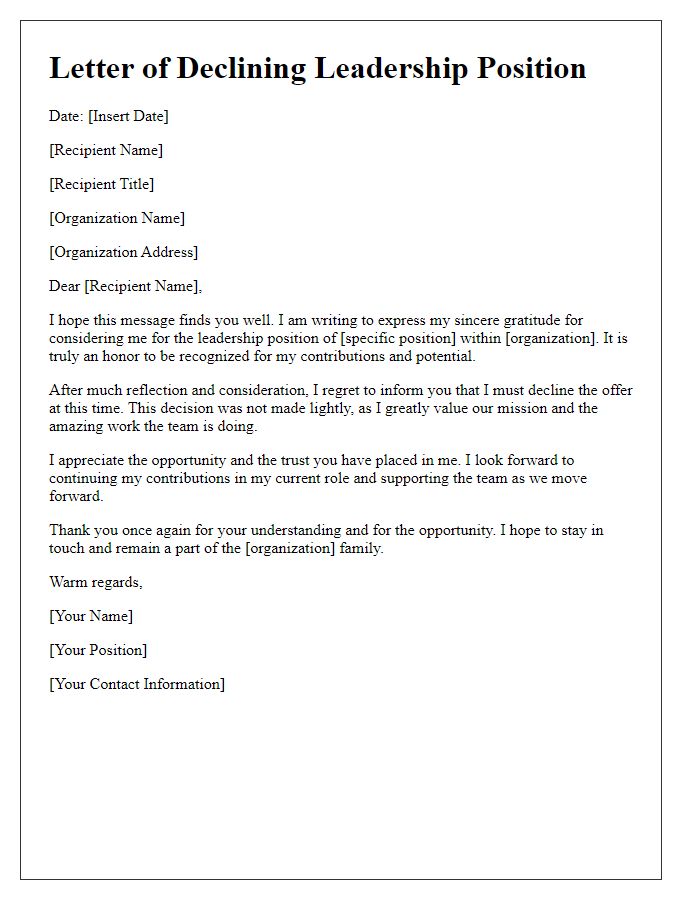
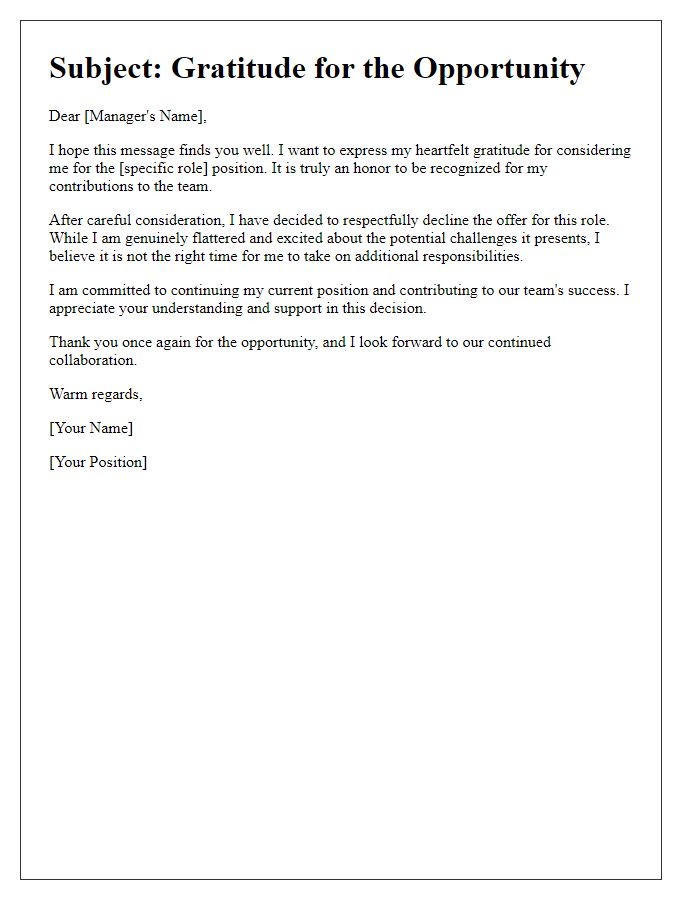
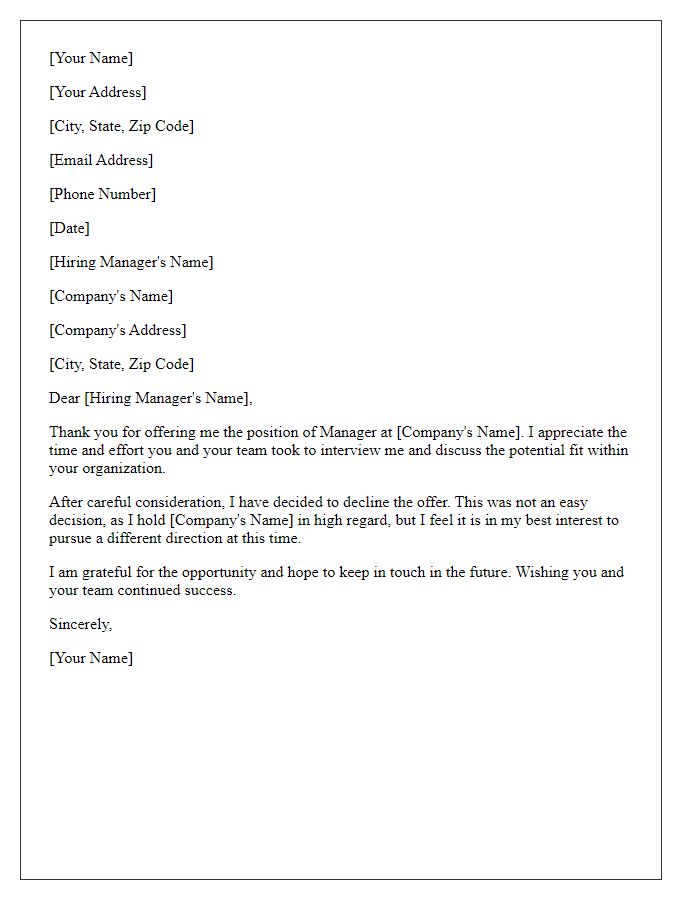
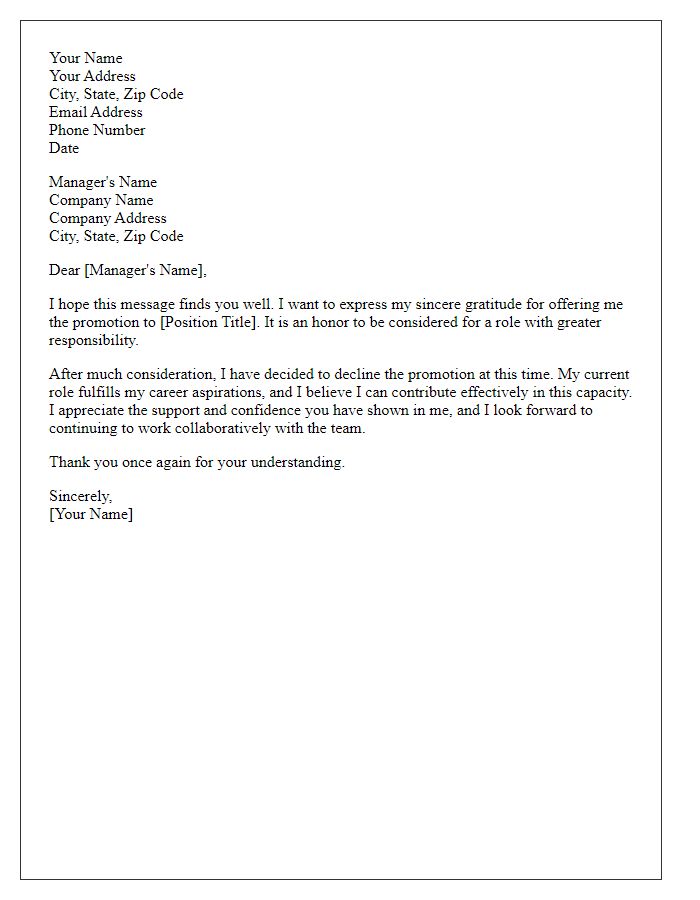
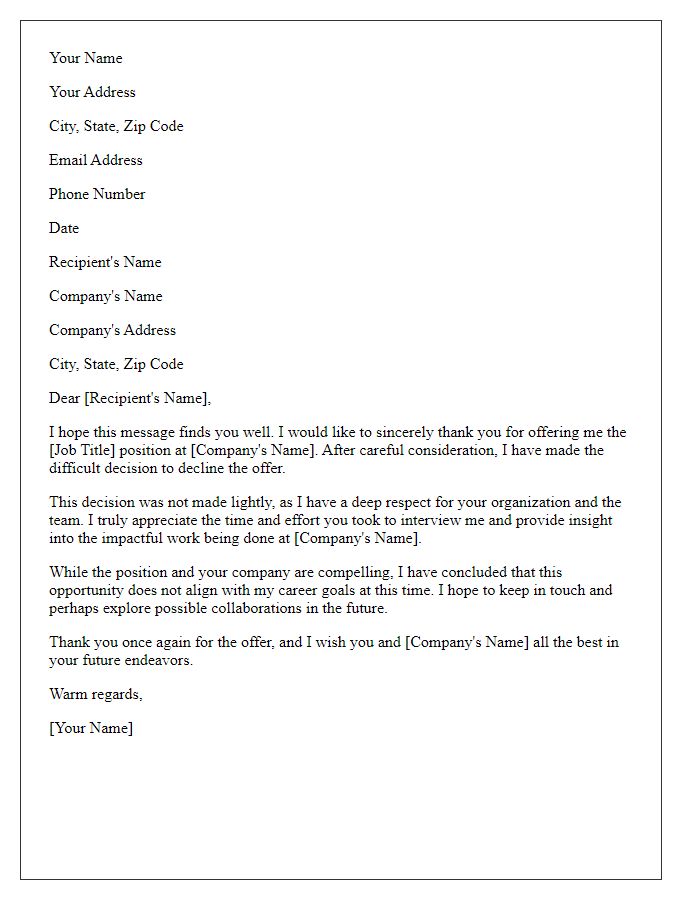
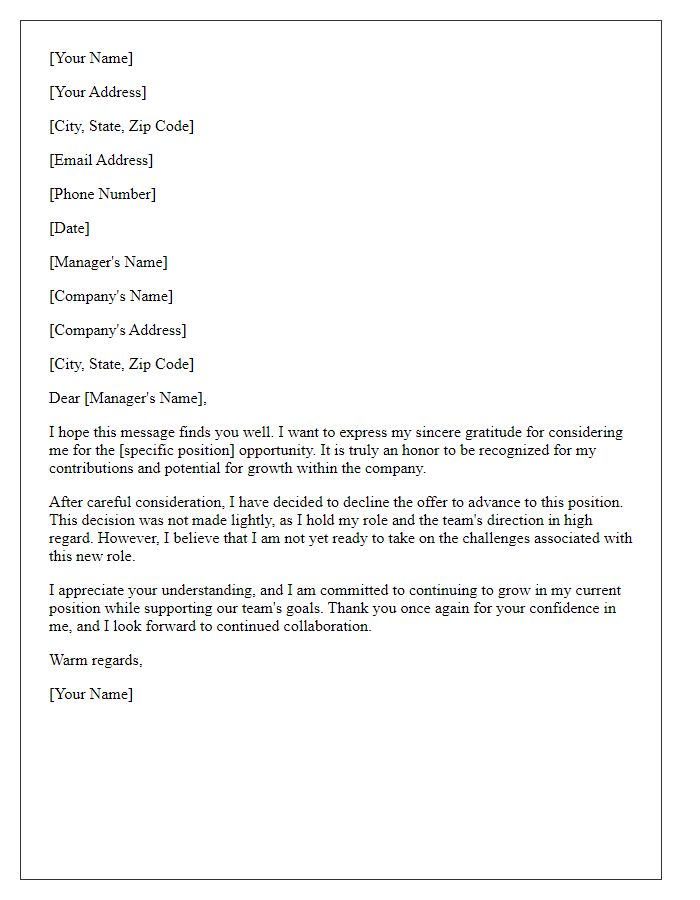


Comments